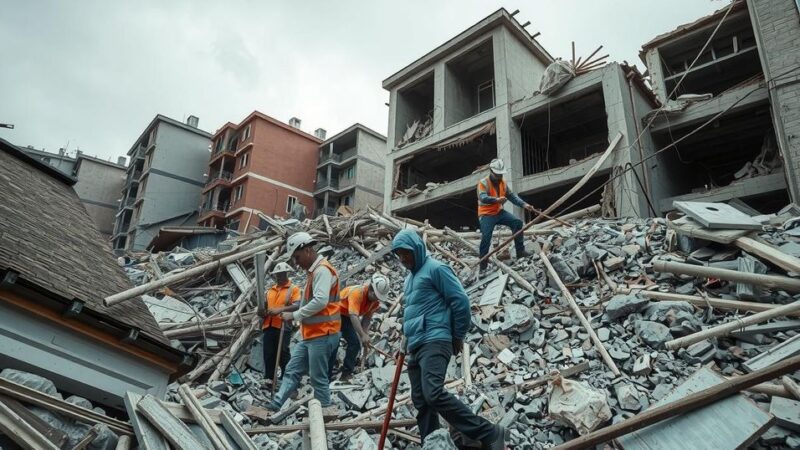South Sudan is grappling with severe flooding that has contaminated water sources with oil pollution, leading to significant health risks. Residents are forced to consume polluted water amidst a dire lack of clean alternatives, causing adverse health effects, including a rise in congenital disabilities. Local leaders demand greater accountability and transparency from the oil industry, with concerns regarding the lasting impacts of environmental pollution intensifying as communities struggle to survive in the face of climate change.
In South Sudan, herders are risking their health by drinking polluted water from ponds contaminated by the surrounding oil fields. Local chief Chilhok Puot explained the water has chemicals, stating that consumption causes adverse health effects. Unfortunately, with severe drought conditions lingering, clean water sources are scarce, forcing residents to drink from contaminated supplies. Former oil engineer David Bojo Leju indicated that climate change has exacerbated the flooding, washing oil pollution into vital water sources, leading to widespread health hazards.
The major oil-producing Unity State is facing unprecedented flooding, disrupting daily life. Extreme rains starting in 2019 saw flooding that submerged much of the region. The United Nations reported that at the peak of the disaster, two-thirds of Unity State was underwater, and even now, about 40% remains affected. Flooding has compromised local agricultural practices, causing cattle deaths linked to pollution.
Years of oil extraction have left environmental damage lingering in the groundwater, further complicating the health crisis. Bojo Leju highlighted the contamination of water sources due to oil spills and improper treatment of produced water, which he states enters the ecosystem untreated. The impacts on human health have been alarming, with local health professionals reporting a rise in congenital disabilities, potentially linked to pollution from the oil industry.
Reports of congenital deformities in newborns are being observed across healthcare facilities in Unity State, with the absence of reliable data complicating the assessment of these conditions. Dr. Samuel Puot highlighted concerns regarding the lack of access to clean water, asserting it could be contributing to these health issues. Environmental contaminants from oil extraction may disrupt fetal development and pose risks for serious birth defects in affected regions.
Amid the environmental challenges, local leaders have been pushing for more accountability from oil companies and the government. Mary Ayen Majok, a senior politician, criticized the industry’s practices and highlighted the need for proper documentation of pollution effects. Although the government commissioned an environmental audit, results remain undisclosed, raising concerns over transparency regarding the health implications of ongoing oil activities.
Experts suggest that the ongoing flooding may be linked to climate change, complicating recovery efforts. Dr. Chris Funk explains that recent extreme weather patterns correlate with global warming trends, which are anticipated to intensify. While the future of Unity State remains uncertain, local communities express hope for recovery by returning to traditional livelihoods in agriculture and livestock. Despite the hardships, residents hold onto dreams of rebuilding their lives once conditions improve, illustrating resilience in the face of adversity.
Climate change has significantly impacted South Sudan, exacerbating flooding and leading to pollution in crucial water sources. As a nation heavily reliant on oil revenues, the mismanagement of oil extraction processes has further stressed local communities already facing environmental degradation. The unique circumstances of Unity State, where oil production and extreme flooding intersect, have created a critical public health crisis, prompting increased scrutiny of the government and oil companies’ responsibilities toward residents’ well-being. The ongoing health implications, especially concerning rising congenital disabilities, underscore the urgency of addressing the environmental and health crises driven by pollution.
In conclusion, the dire situation in South Sudan highlights the intersection of climate change and oil pollution, severely affecting local communities’ health and livelihoods. The combination of prolonged flooding and polluted water sources has resulted in increased health risks, notably congenital disabilities among newborns. Community leaders call for accountability and transparency regarding the environmental impacts of the oil industry, and the ongoing humanitarian crisis continues to reveal the vulnerabilities faced by the population. A renewed focus on environmental health and resource management is critical for the country’s future.
Original Source: www.bbc.co.uk






